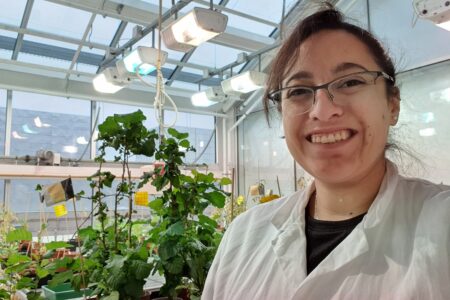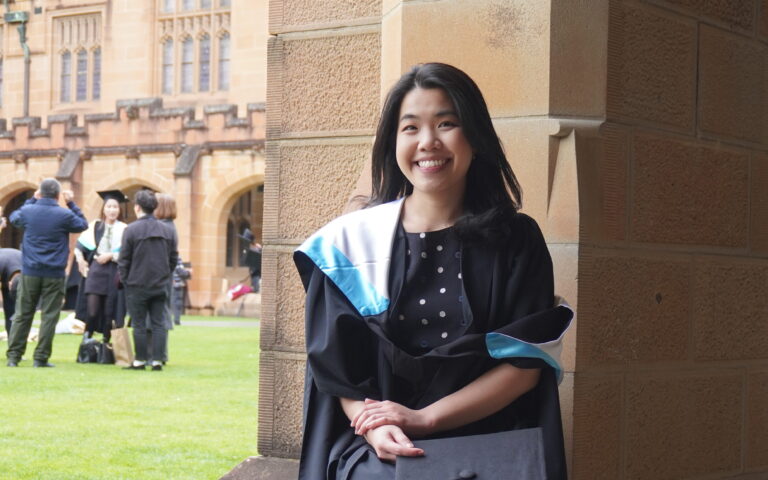
When Phatsaline Vongsaly faced a set of mental health challenges before the last semester of her postgraduate degree in Australia, her immediate plans were to return to Laos.
“I wanted to go home for a respite,” says Vongsaly. “I wanted to be back with my family, back to my country, and my community.”
Born and raised in Laos, Vongsaly had been pursuing a combined BS in Neuroscience and a Master of Nursing from the University of Sydney.
Like most who aren’t certain what degree to choose but have performed well in science-related studies, Vongsaly opted for a broader field of science. She started with medical science — though that only lasted for a semester before exposure to psychology and neuroscience subjects sparked her interest and desire to pursue that instead.
“I was learning about psychology and the brain and how it influenced our human behaviours, and it was just realising that the brain was an amazing organ, so in the end, I decided to pursue neuroscience,” says Vongsaly.
Based on her programme’s structure, Vongsaly could complete a relevant bachelor’s degree and end it with a master’s in nursing in just four years, and she did just that — mostly.
With just one more semester to go, Vongsaly had to deal with some personal trials. Her studies, once manageable, became hard.
“I had an emotional meltdown, and I needed a break from my studies,” she says. “I just wanted to be with my family and to take care of myself.”
With that, she made the big decision to postpone her last semester and return to Laos for a short visit – that is, until COVID-19 pandemic shut the world down.
Between the pandemic, her visa issues, and the personal concerns still weighing her shoulders, Vongsaly decided to delay her studies again.
“I wasn’t ready to go back to university – the issues I was facing at that time were very significant to me and my family, so I decided I needed to stay with my family and stick with my country and my roots,” she says.
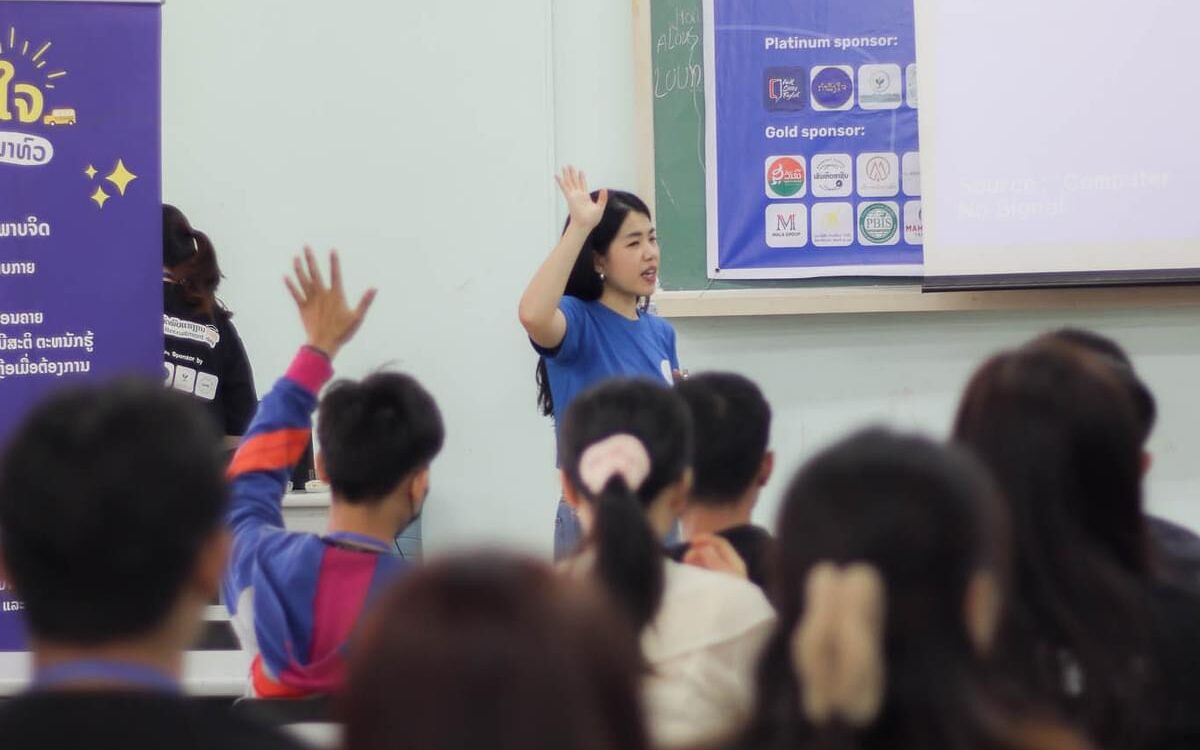
Vongsaly’s journey into raising mental health awareness in Laos started with just a workshop covering the basics of the subject. She never imagined it evolve into what it is today – a social enterprise spearheading the movement. Source: Phatsaline Vongsaly
How to pick yourself back up again after a fall
During her study break, Vongsaly did what she always did when she had time on her hands: volunteer.
Her past experiences include working as a social worker assistant with the Women International Organisation Laos, a medical interpreter with Japan Heart Laos, and during COVID-19, a workshop facilitator for the American Centre Thatdam.
It was there that Vongsaly first explored the idea of mental health awareness in Laos.
With her own exposure to the subject through her work placement in a mental health ward in Australia, there was no better time to approach it than then.
“I really wanted to do something to benefit my community,” she says, and she proceeded to do just that.
The American Centre Thatdam was a community hub for young people to learn, explore, and discover topics through workshops and sessions – the perfect place for Vongsaly to conduct her workshop about self-care.
The session covered the basics: mental health and its conditions, well-being, the spectrums of it and mental illnesses, and their symptoms. It also covered how one could respond if their loved one was going through a crisis and how they should take care of themselves, too.
“I conducted it based on my experiences in Australia,” says Vongsaly. “I translated that concept of mental health awareness to Laos. I just hoped that when people go through these challenges, they’re able to find ways to improve their well-being and also support their loved ones as well. That is the goal from the start.”
In Vongsaly’s words, the workshop’s turnout was surprising — it reached its maximum capacity of 40 participants.
“I didn’t expect that because I’m not a doctor, and I wasn’t a senior in the organisation,” says Vongsaly. “I was just 25 then, so why would anyone want to join my workshop?”
However, the results spoke for themselves once the workshop was successfully conducted.
Strangers started to reach out to her. Whether they were family members concerned about their children or teens who resonated with her workshop and wanted to learn how to navigate the services, her DMs and awareness in the area started to go up.
Soon enough, more opportunities to raise mental health awareness came her way.
“I think my community just perceived me as someone who talked about mental health at the time, even though I didn’t really think that it was something I would be doing for the long term,” says Vongsaly.
Things took an even further upward turn when Vongsaly came across the Global Shapers Community. This initiative of the World Economic Forum is a worldwide community of active changemakers across more than 500 local hubs.
During her first brush with the community, Valy Phommachak, a curator of Global Shapers Vientiane Hub in 2020 and the founder behind Eco News Laos, reached out to Vongsaly about starting a space in Laos for people to raise mental health awareness.
It was a cause that Vongsaly easily agreed with, and together with fellow co-founders Anna Souvannalath and Ketsada Soysouvanh, Gamlangchai transformed from a volunteering project into a dedicated community-based mental health organisation in Laos.
They were supported by Mayu Masuhara too, a founder of Queers & Cheers. Together, they were – and still are – committed to ensuring that Gamlangchai’s activities are inclusive and reflect a diverse range of representation.
“In Lao, Gamlangchai means to provide emotional support or to provide encouragement to someone when they’re going through some emotional difficulties,” says Vongsaly.
Run by mental health workers and volunteers with lived experiences, Gamlangchai’s mission was to foster a community where people feel safe sharing about their mental health and well-being.
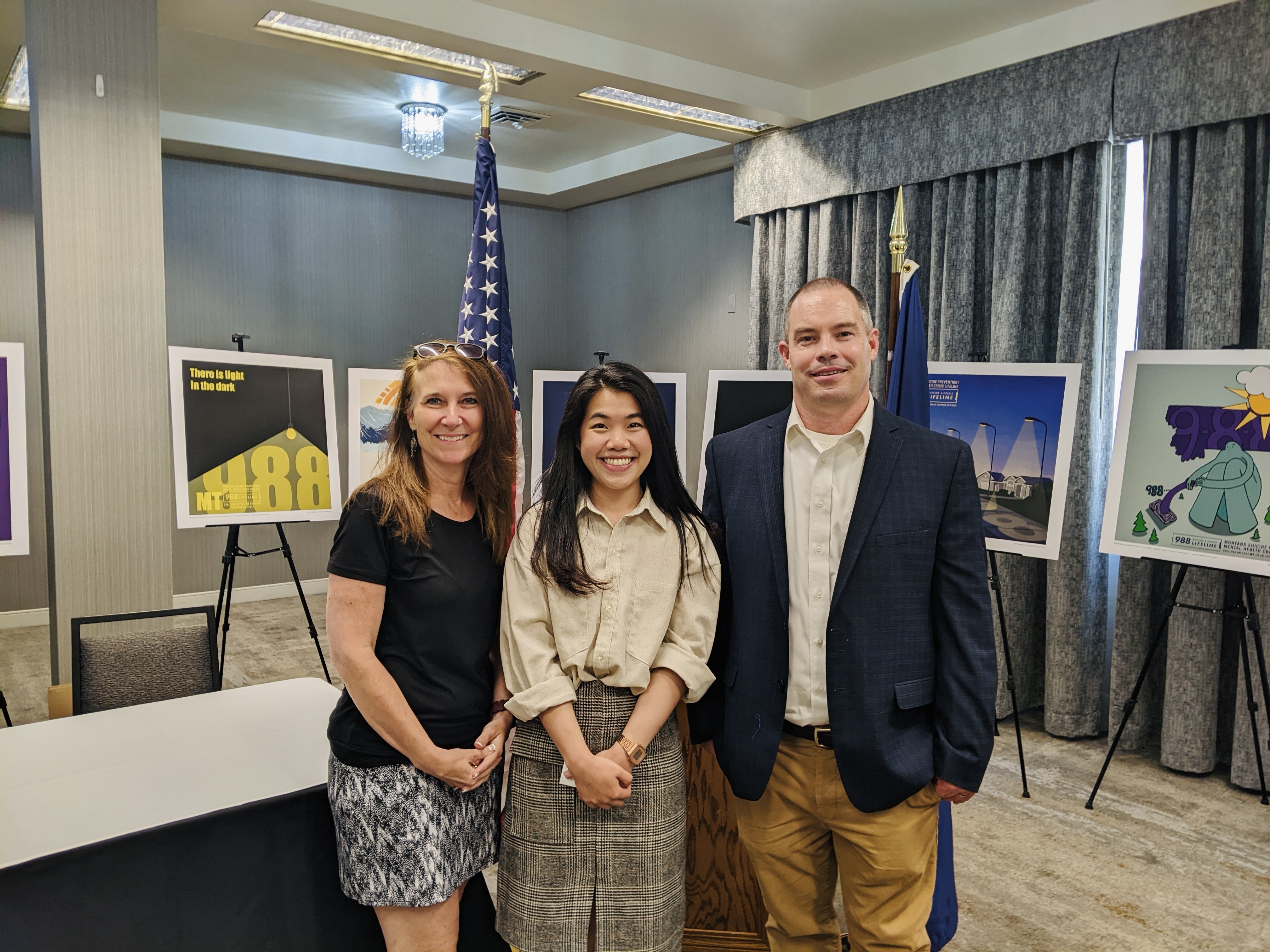
Vongsaly (middle) put her studies on hold to explore a variety of other options – all with the goal of learning how to advocate for mental health in Laos. Source: Phatsaline Vongsaly
Learning to advocate for mental health awareness on the go
About 260 million people in Southeast Asia (SEA) – that’s around one in seven – live with a mental health condition, said Dr. Andrea Bruni, World Health Organisation (WHO) regional advisor for mental health, in a 2023 interview with CNA.
In the case of Laos, a 2022 UNICEF report found that one in four young people in the country reported personally experiencing mental health challenges.
And as many as 75% of rural people do not have access to any proper services.
By being part of the Global Shapers Community, Vongsaly – and Gamlangchai, by extension – would have exposure and access to a multitude of international experts and young people worldwide who want to create their own mental health space in their respective countries.
“I was really fascinated by that,” says Vongsaly. “In Laos, we don’t have a curriculum to train people to become mental health specialists. It’s a highly stigmatised and taboo topic, and people don’t generally reach out for help.”
There was more to it too, such as people not even aware they were having issues or that they needed professional support. Even sharing your struggles with your loved ones was perceived to be something shameful.
But Vongsaly wasn’t deterred, especially since she could now find help through the Global Shapers Community platform.
“It helped me to broaden my perspective in terms of what advocacy is like, how you can actually be a catalyst, and to create a positive change in your community,” she says.
That “learning how to advocate” became a big part of Vongsaly’s journey to raising mental health awareness.
As someone who had never done a project of this scale, she was learning the ropes of the trade on the job.
“I would reach out to those involved in mental health space in Southeast Asia, around the world, and those who are going through the same struggle in advocating to make the necessary services accessible and affordable,” shares Vongsaly.
In that time, Vongsaly also found the opportunity to work with WHO as the Laos national consultant for mental health and psychosocial support for COVID-19. There, she was able to bridge the gap and localise the work that needed to be implemented specifically for Laos.
“Many international organisations develop and implement programmes, but oftentimes they’re not created by a local of the country,” says Vongsaly. “There’s no sustainability in that, so I was thinking of ways to benefit the local community through a local lens.”
And with that in mind, Gamlangchai, with the support of the Global Shapers Community, hosted its first annual Wellness Festival in October 2020.
“That was our first wellness event in Laos for mental health that includes art, wellness talks and music,” says Vongsaly.
The turnout was fantastic – with no social distancing measures in place at that time, 300 people showed up for the event, and Vongsaly knew they had to keep the ball rolling.

Gamlangchai’s first-ever Wellness Festival saw over 300 participants – a fantastic start to raising mental health awareness in the community. This picture shows the second Wellness Festival. Source: Phatsaline Vongsaly
Dedicating a life to raise mental health awareness for her country and community
It wasn’t too hard of a choice for Vongsaly to postpone her studies once more so she and Gamlangchai could keep their hold on this attention.
Plus, these experiences were beginning to feel like a mini master’s programme of sorts – she had been learning from international specialists and was even meeting with people in the government sector.
“It’s like a once-in-a-lifetime opportunity to actually be able to expose these discussions about mental health and how we can change or improve it in Laos,” says Vongsaly.
So, with more time on her hands, Vongsaly dove into learning all she could about advocating for mental health in Laos, putting a pause on Gamlangchai’s offerings in the meantime.
She learned how to build pitch decks and how to pitch her ideas with the Young Southeast Asian Leaders Initiative, gaining regional exposure to the behavioural health scene.
She also learned from others at Orygen, an Australian organisation that works alongside young people to transform youth mental health research, policy, education, and clinical care.
All of these experiences and more, combined with her own understanding of the mental health landscape in Laos, allowed her to best translate the work and implement it sustainably in the country.
To top it all off, once Vongsaly had finally returned to university to finish her semester, she graduated as a registered nurse and immediately spent the next year and a half working in a psychiatric ward in Sydney.
“At that point, I had a sense of confidence in knowing that I was doing the right thing and that I’m on the right path to something achievable in Laos,” says Vongsaly.
So, naturally, the next step had been to reboot Gamlangchai, this time with everything poured into it.
“The time is now,” says Vongsaly. “Life in Sydney was stable, but my heart was always calling for my community.”
“I’d feel like there was always so much more that I can do, and when I was doing nursing, I would always think about what we could do with Gamlangchai.”
By that point, Vongsaly already had a team in Laos working on Gamlangchai’s programmes, and she would dial in from Australia for updates and brainstorms.
Now, the social enterprise registered in March 2024 will have Vongsaly’s full attention instead. Together with Vongsaly’s team of co-founders, they’re spearheading a way to make mental health in Laos not just know, but better too.
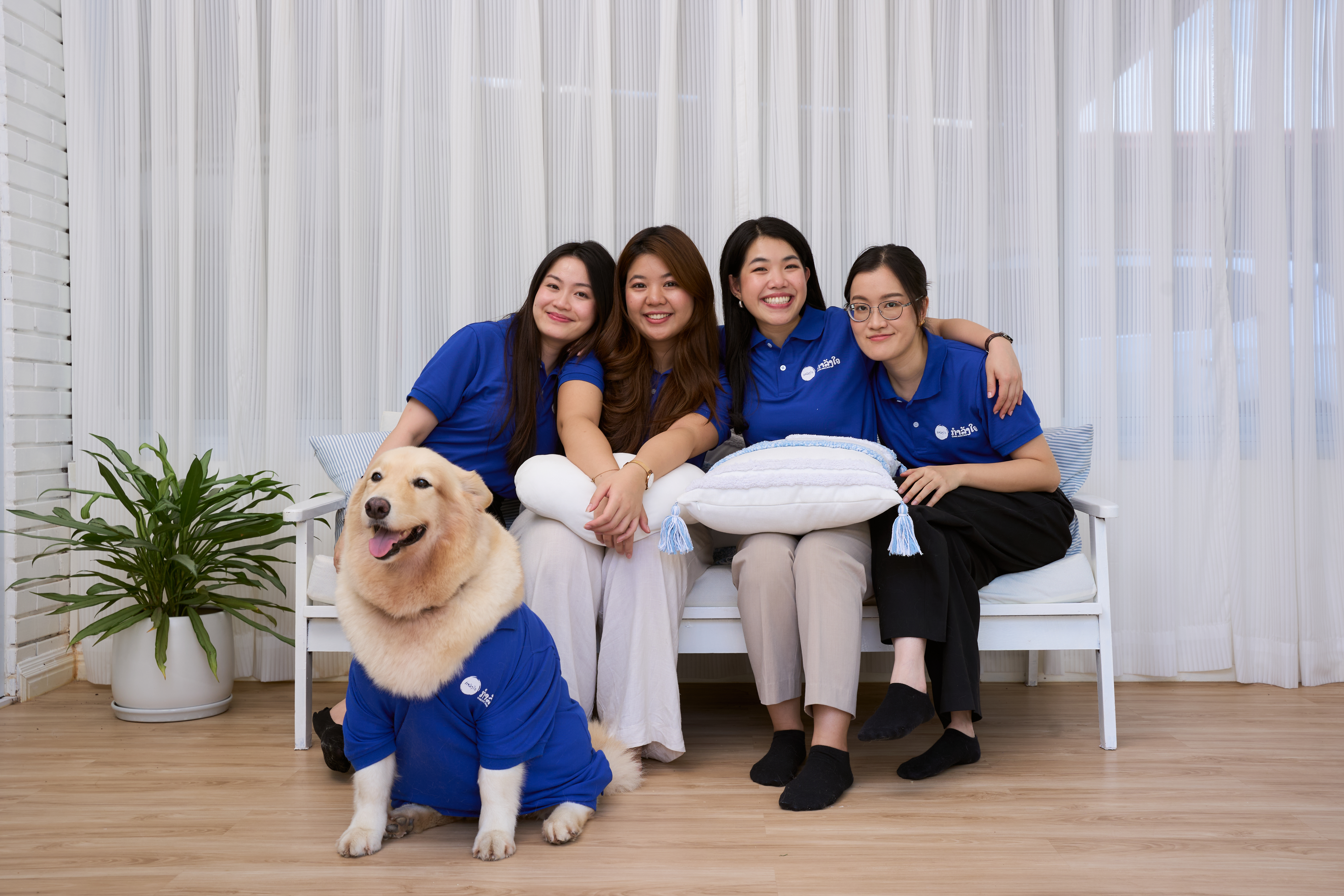
Vongsaly (second from right) and her team at Gamlangchai, including Malie the therapy dog. Source: Phatsaline Vongsaly
One person to start the conversation, an entire community to carry it on
Vongsaly never imagined she’d be where she is today – leading Gamlangchai and advocating for mental health awareness in Laos.
But it all began with her own lived experiences.
Not being able to find a specialist to reach out to in Laos during her times of need has resulted in Gamlangchai training young people to become mental health advocates, hosting educational programmes for schools, and even an annual Wellness Festival.
“There was a pyramid model for mental health services, where at the bottom level is the community level, the place where you can do the most, and it is very cost-effective for people to access,” says Vongsaly.
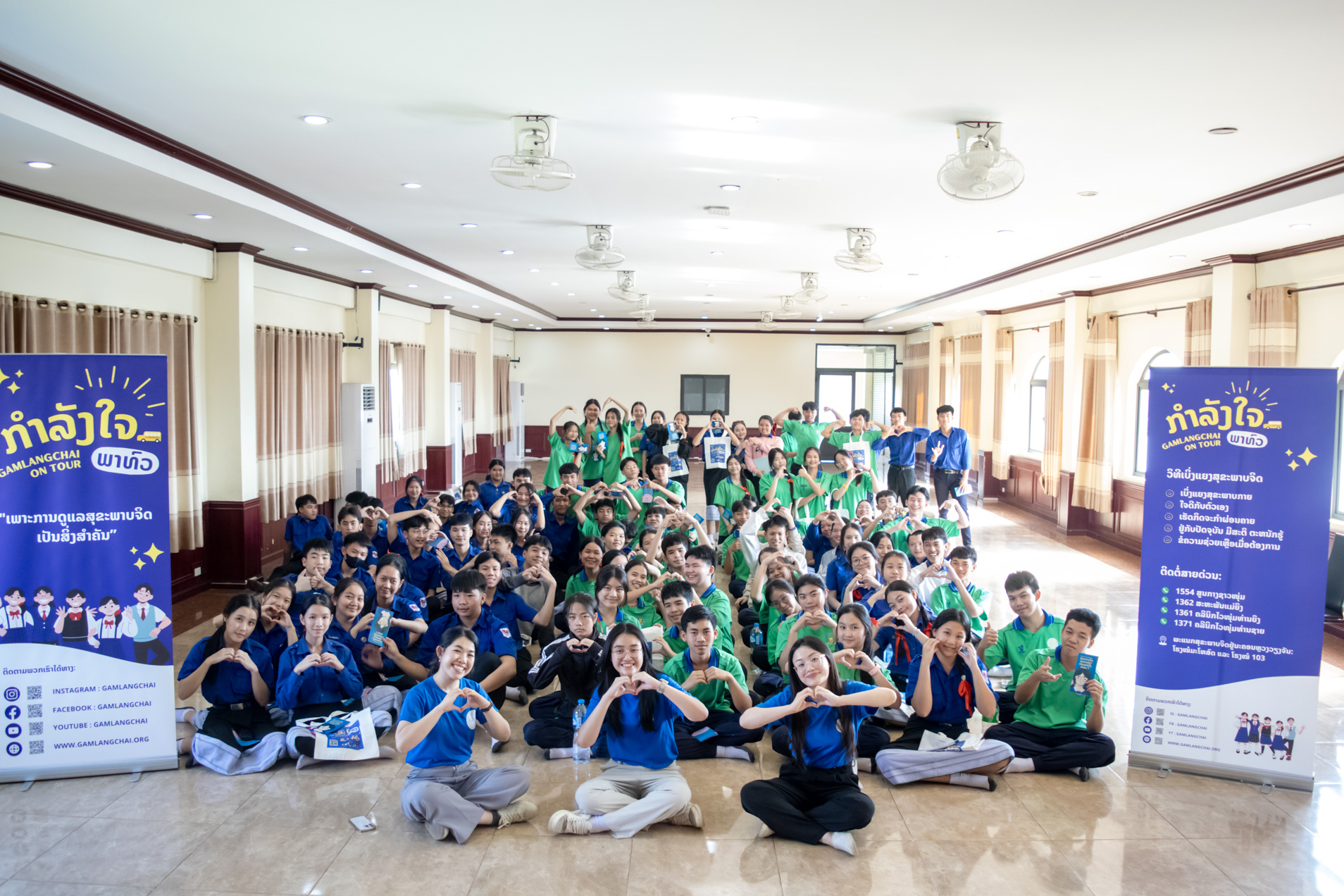
Gamlangchai On Tour is a programme to raise mental health awareness, provide simple self-care tips, and encourage help-seeking behaviours among students. Source: Phatsaline Vongsaly
“And if you go to the top of the pyramid, it would be like psychiatric wards or psychiatric services, which is very costly, and we don’t have a lot of specialists in terms of mental health capital in Laos. But there’s already so much we can do at a community level.”
Vongsaly might have initiated the conversation, but having a community of people — local and abroad — has helped make Gamlangchai what it is today: an opportunity for Laos to have the support it wants and needs.
Now, their next goal is getting a dedicated Gamlangchai building, a one-stop shop for mental health for people to walk in and talk about their challenges or receive support for it.
“This way, we can provide more community support,” says Vongsaly. “We’ll be able to give wellness workshops to someone who needs more professional support, have a training centre to build human capital in mental health in Laos, and have a research centre too.”
“We have a lot of big dreams, so we have to keep ourselves grounded and make sure we’re
celebrating our small wins along the way.”










